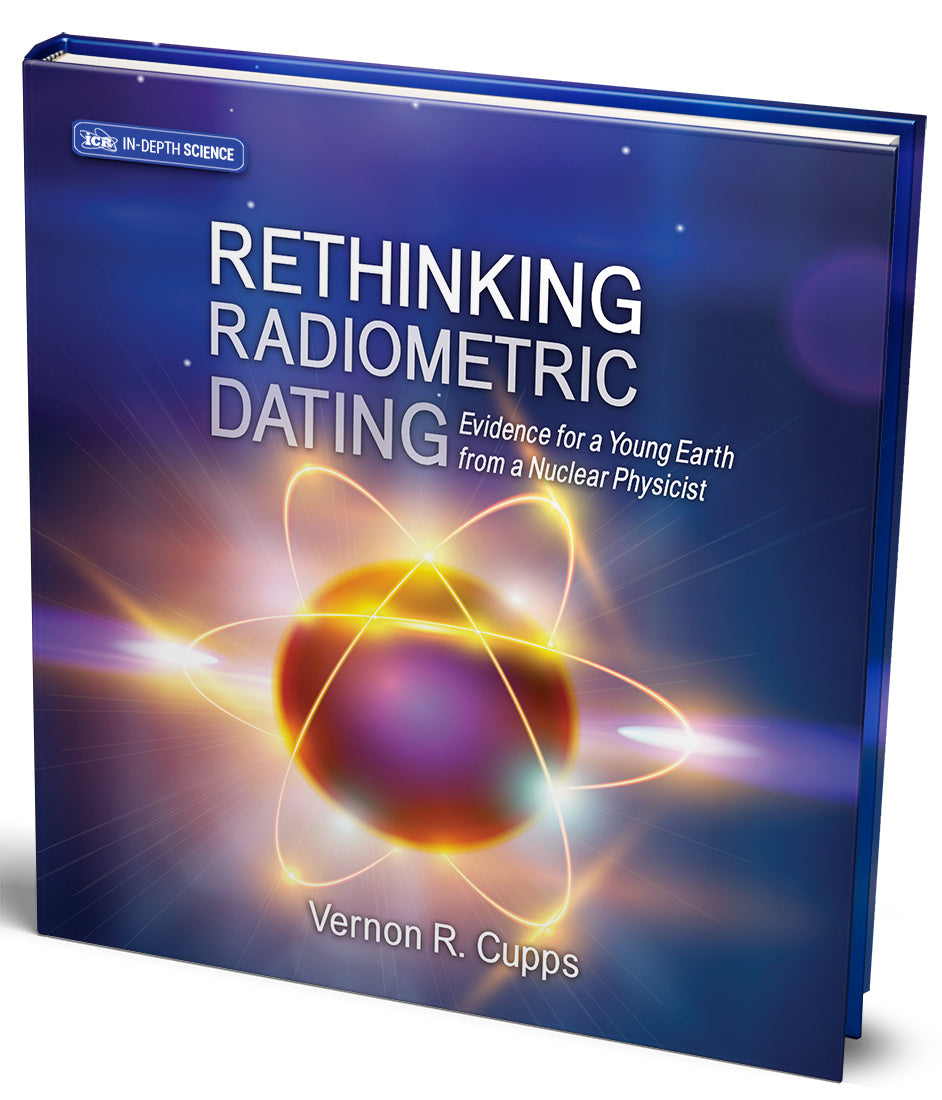Institute for Creation Research
Rethinking Radiometric Dating
Rethinking Radiometric Dating
Couldn't load pickup availability
How old is Earth? In secular circles, the age is believed to be around 4.54 billion years. This number is used so often that most people accept it as a scientific fact.
Radiometric dating is an important key to the deep-time age estimate for Earth. Various methods use radioactive elements and their decay products to date rock samples from around the world in the hundreds of millions of years. But is radioactive dating valid?
With decades of experience in top nuclear physics laboratories, Dr. Vernon Cupps tackles this question from a scientific and biblical perspective. He shows how radiometric dating methods make assumptions that cannot be verified and examines the significant problems with the radioactive dating methodology currently employed by secularists.
The first entry in ICR's In-Depth Science series, Rethinking Radiometric Dating goes into detail about the major radiometric dating methods, including potassium-argon, rubidium-strontium, uranium-lead, and others. Dr. Cupps also examines thermoluminescence dating, Earth's magnetic field, radiohalos, zircons, radiocarbon dating, and soft tissue in fossils to uncover what the evidence actually reveals about Earth's age.
| Christians don't need to rely on flawed science to tell them about origins. Instead they can rely on the clear revelation of Scripture that Earth, life, and everything else was supernaturally created by God just thousands of years ago. |

